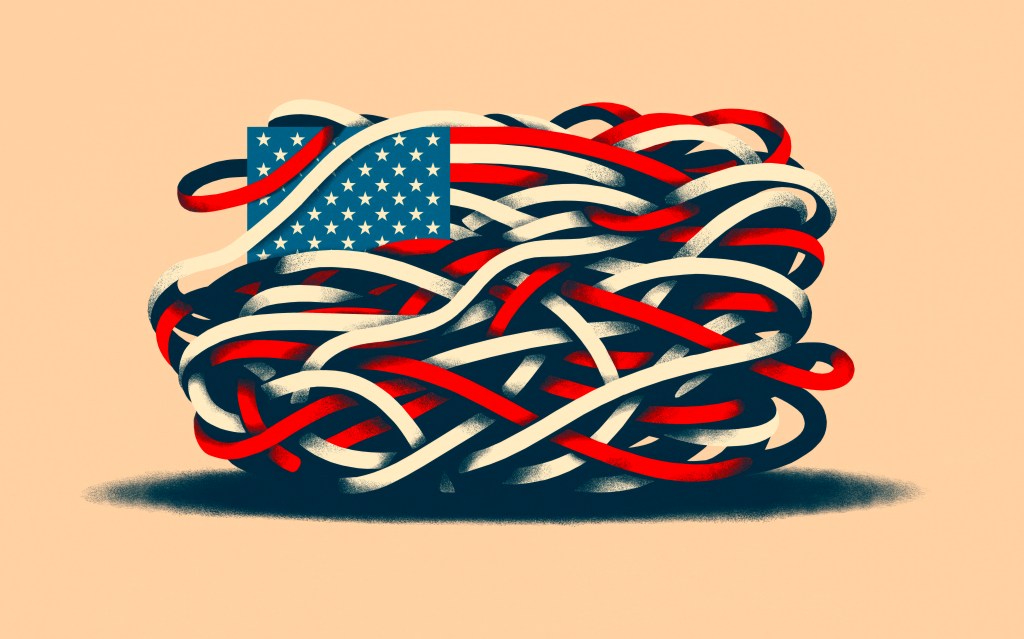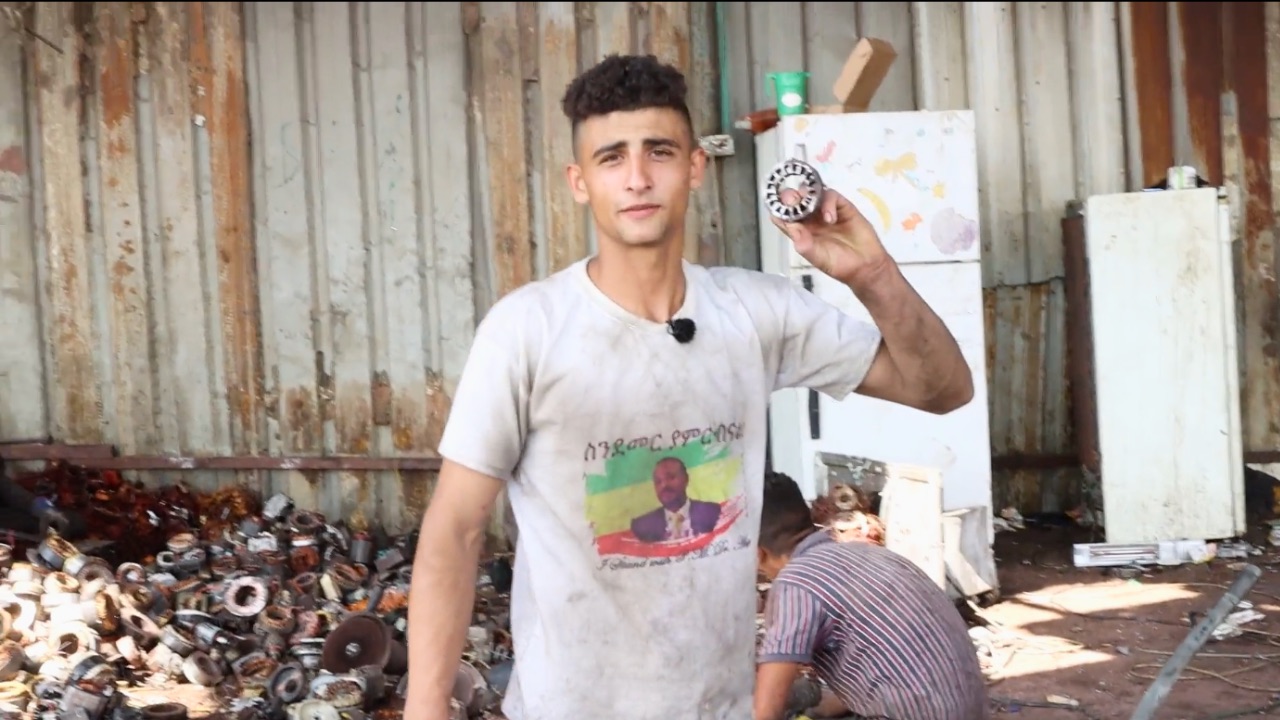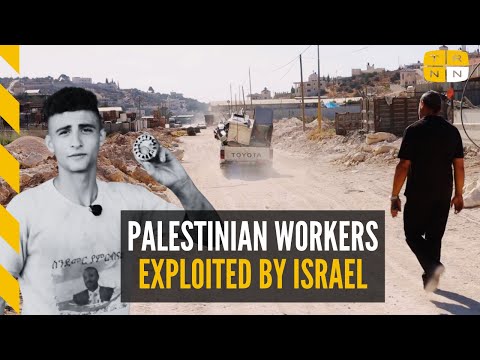In the town of Idhna in the West Bank, Palestinian youth labor in unregulated “e-waste” factories in the shadow of Israel’s Apartheid Wall. Driven from their land, and denied opportunity and employment in Israeli society, these workers come to these jobs because they often have few other options. Many of the workers are highly educated, but unable to pursue their preferred careers due to the reality of living in an apartheid state. Most of the electronic waste comes from Israel, and Israeli businesses benefit immensely from being able to ship such waste to the West Bank to avoid paying taxes, exploit cheap labor, and then profit from the recycled precious metals extracted from the garbage. The Real News reports from Idhna, speaking directly to the workers in the town’s e-waste recycling facilities.
Videography: Ahmad Al-Bazz
Interviewer: Sarah Abu Alrob
Producer and Video Editor: Ross Domoney
Narrator: Nadia Peridot
Transcript
Nadia Peridot:
In the town of Idnha, in the southern West Bank, the towering Separation Wall cuts people off from their land and the outside world – diminishing prospects of employment or societal development, and leaving citizens in a state of perpetual stagnation.
Worker:
This is Iron.
Nadia Peridot:
The Real News spoke to labourers here about their work in Electronic, or ‘e-waste’, Recycling, where electrical goods are broken apart to extract the precious metals within.
Khaled Abu Juheisha:
Palestinians do not want to work in waste.
They just want an income to afford this expensive life.
We don’t like waste, It is an opportunity for the Israelis.
They send us that waste and avoid taxes.
The youth here are forced to work with it due to unemployment.
Abdulrahman Tumaizi:
Electronic waste and scrap mostly come from Israeli sources.
It arrives at these workshops here and it gets separated.
There are many metals: iron, copper, aluminum.
Transporting these materials to the West Bank, near Hebron, is a great benefit for Israel.
They get rid of this waste completely and it comes back to them clean.
Here we suffer from the remains
and our environment suffers the damage.
Nadia Peridot:
It is well documented that Israel exploits Palestinians for cheap labour. The Occupation has a chokehold on the Palestinian economy, and workers here have little choice but to toil for meagre wages, often in back-breaking jobs. While Israel has its own waste management system, much of the difficult and dangerous e-waste is dumped in the southern West Bank to be sorted and returned for Israel to collect the profits.
Ameer Sulaymiya:
Our wages are less than theirs [Israeli workers].
Taking into account the fees we pay for transportation [to work].
However, it poses less of a burden on us, compared to them.
For them, difficult tasks take time and effort. For us these jobs are not so challenging.
Ahmad Al-’Eswed:
Israelis don’t make an effort like us because they have job opportunities.
The state provides them with job opportunities. We don’t have that.
The occupation is the reason for the lack of job opportunities here.
There is no horizon for us. If we want to expand they will come and stop us.
You cannot develop like them. There is a limit.
You cannot develop like them. There is a limit.
Nadia Peridot:
Unemployment in the Occupied territories reached 24% in 2022, significantly higher than Israel’s 3%.
Tareq Batran:
I do not have money. It’s all about money, god damn it.
If I had the money would I work here?
Nadia Peridot:
Workers here explained that many people – from school leavers to the highly educated – find themselves in this line of work due to the limitations imposed on them by the Occupation.
And, though difficult, this dangerous work is readily available to Palestinians who may otherwise struggle to find work due to Israeli restrictions.
Bassam Al-’Eswed:
Because it is difficult work it requires working hands capable of recycling these materials.
We buy these materials from [the Israelis] because workers are available and because there is unemployment.
Graduates suffer from unemployment.
Engineers, teachers, nurses, and medical professionals.
Today even doctors are suffering from unemployment.
There are no opportunities. There is no room for creativity here at all.
People are forced to work here to provide for their families.
Nadia Peridot:
e-Waste recycling poses a serious health risk to workers, as well as to the land and neighbouring communities – and these primitive/rudimentary, unregulated factories pose the greatest danger.
Ahmad Al-’Eswed:
This job has pollution like any other job.
There are [spaces] in Area C, close to the wall.
There were workshops, but they were demolished.
People dug water wells for agriculture. They [the Israelis] demolished them.
If you build a house in Area C, it is prohibited.
It’s getting crowded.
Nadia Peridot:
The Occupation makes it so difficult for Palestinians to earn a living, under an oppressive regime, and restriction of movement, that these workers are grateful for the comparative ease of this labour. Whereas many endure hours-long checkpoint [inspections] to reach work outside the West Bank, these men are able to freely access the Palestinian-run recycling workshops.
Ahmad Al-’Eswed:
Here, no one has to wake up at five in the morning to work in Israeli workplaces.
We wake up at eight o’clock, and at five o’clock in the afternoon we are home.
Nadia Peridot:
For generations, agriculture has been the backbone of the Palestinian economy, and the connection to the land a part of the peoples’ identity. Through domination and annexation, Israel has largely dismantled this key element of society. With most of the fertile land designated ‘off-limits’, water resources cut off, and very few permit applications granted to allow Palestinians access to their own agricultural land, farming is no longer a viable profession for most.
Khaled Abu Juheisha:
Most people in Idhna, which is a rural agricultural town, worked in [agriculture]. After the areas enclosed by the wall for agriculture and grazing shrank, now you have to buy fodder for the sheep, instead of grazing them around for free. The process becomes a massive financial loss due to the cost of feed.
Nadia Peridot:
Decades of Israeli occupation has systematically disconnected Palestinians from the land, and from their aspirations for a life of education and prosperity.
People here have been reduced to working simply to survive.
And while Israel prospers, Palestinians pay the price: with their land, their health, and the freedom to follow their dreams.






